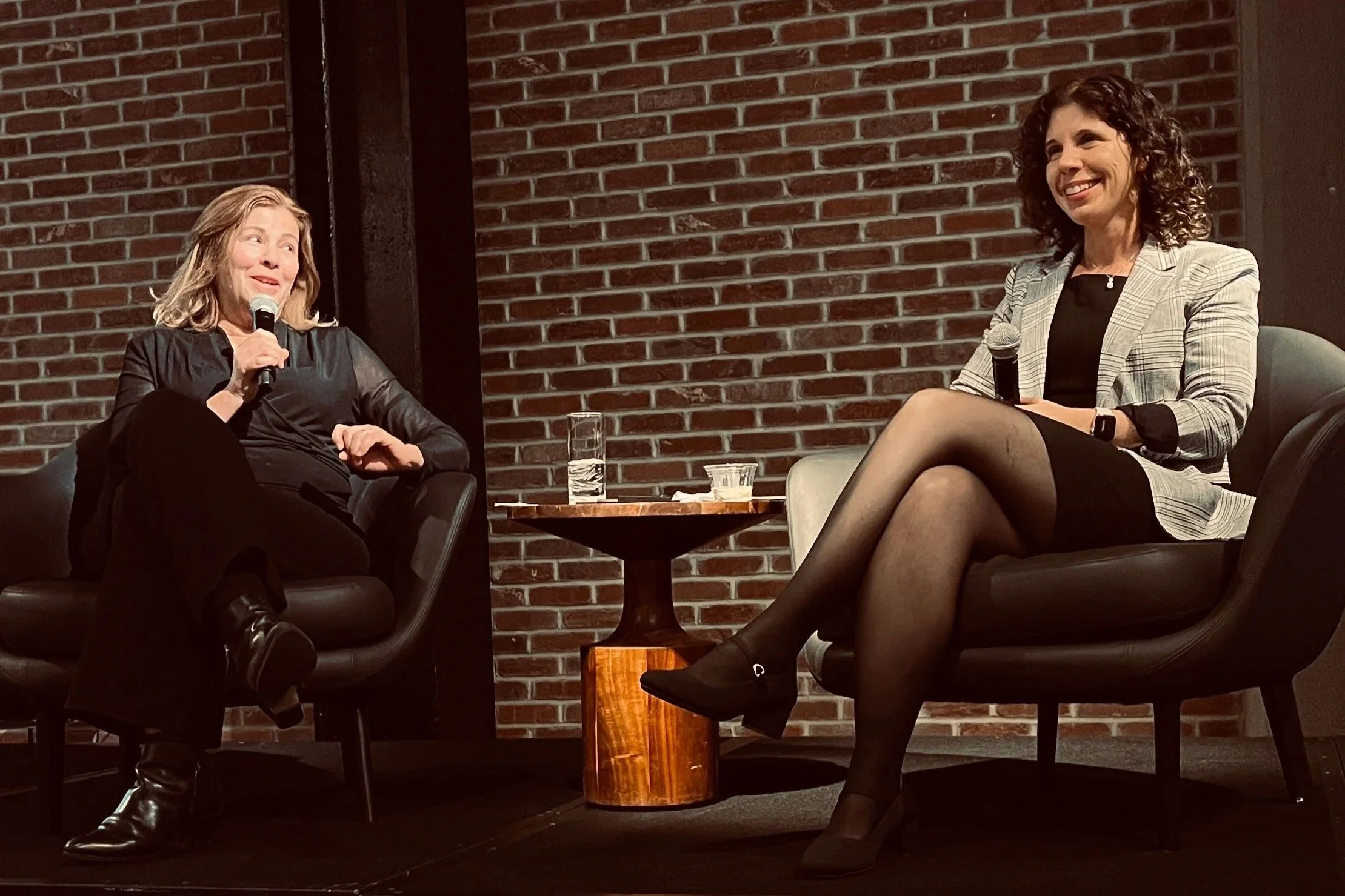Revolutionary: From Prison Reform to Public History
Host Maiken Scott (left) and speaker, Kerry Sautner (right) in discussion at the November 2025 event.
By: Maiken Scott
How can a crumbling, historic site be kept afloat while simultaneously serving as a gathering space for conversations about justice and incarceration?
Our most recent meeting featured a fascinating discussion with Dr. Kerry Sautner, President and CEO of Eastern State Penitentiary. She highlighted two key chapters in the penitentiary's nearly 200-year history: its revolutionary, if flawed, roots and its rebirth as a modern institution for learning and civic conversation.
Eastern State Penitentiary is a haunting landmark, a magnet for tourists, history lovers, and ghost hunters, and a stark reminder that good intentions can yield terrible outcomes. Built nearly 200 years ago, it was intended by Philadelphia Quakers to be a revolutionary institution, radically different from prisons of the era, where chaos and violence ruled. The design centered on isolation and silence, based on the philosophy that quiet reflection would lead to godliness and self-improvement. Dr. Sautner explained that this extreme isolation had devastating mental health impacts, prompting incarcerated people to find creative ways to connect and maintain their sanity.
The second part of our conversation focused on the penitentiary's rebirth. First, it was saved from developers and preserved as a historic site, after decades of sitting abandoned and being home to hundreds of stray cats. Given its complex history, choosing appropriate public programming is a constant challenge, Dr. Sautner explained. While discussions about social justice, history, and incarceration are essential, other events are carefully vetted. For instance, weddings are mostly a no, but the popular Halloween event not only pays the bills, it actively supports the site's mission. She explained that many people who first visit for a good scare are later drawn back for the serious discussions and educational events.
Dr. Sautner provided great insight into the complex work of keeping an institution relevant and alive, and why it's critical to get the mission right. She concluded with a powerful reminder for our politically fraught times:
"It's really easy to 'other' people. What we have to do is to not give up, to keep pushing, to stay the course. We have to come together in the civic square and recognize the humanity in one another and talk it out, talk it through, and don't give up."

